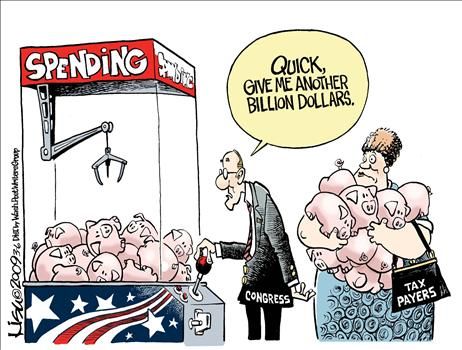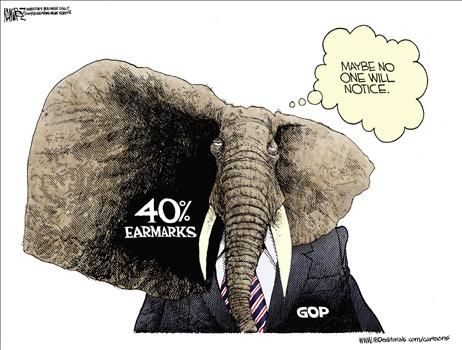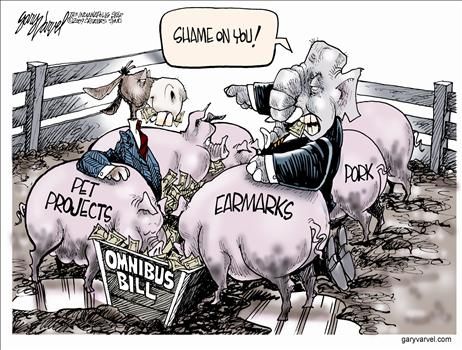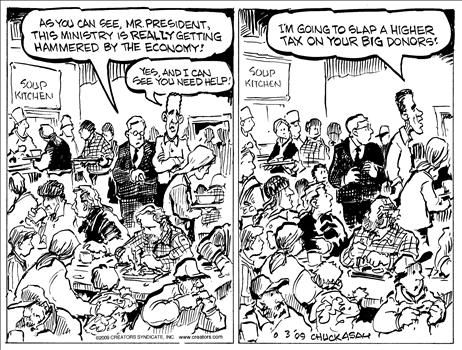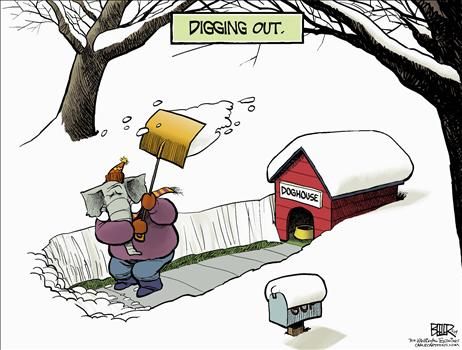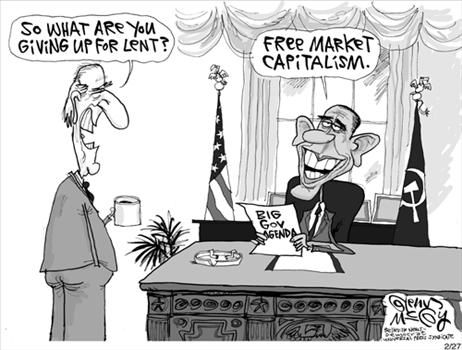Now At: religiopoliticaltalk.com
This site is search-able for old posts and I will keep it up for that reason.
Saturday, March 07, 2009
Something Is Out of Place Here...

Mark Driscoll Critiques Rob Bell, Brian McLaren, and Doug Pagitt
This is great audio! Mark Driscoll, who is pastor of Mars Hill church in Washington, as well as being one of the founders of the movement known as "Emerging, or Emergent, give some great biographical background to this movement, himself, and others. He lays out a case for the orthodox side of the movement, as well as critiquing the unorthodox movement embedded within the very liberal side of the movement.
I can recommend one book that will give both a theological and philosophical critique of this movement, as well as reading a bit of Christian history:
 (From a reviewer on Amazon.com): J. Gresham Machen led the internal Presbyterian struggle against the debilitating effects of the downgrade controversy, evolution and destructive higher criticism. He stood strongly for the inerrant truth of scripture and the unique deity of Jesus Christ and His role as savior. The end result was his expulsion from the Presbyterian Church and its seminary at Princeton.
(From a reviewer on Amazon.com): J. Gresham Machen led the internal Presbyterian struggle against the debilitating effects of the downgrade controversy, evolution and destructive higher criticism. He stood strongly for the inerrant truth of scripture and the unique deity of Jesus Christ and His role as savior. The end result was his expulsion from the Presbyterian Church and its seminary at Princeton.Friday, March 06, 2009
CBO projects $1.2 trillion deficit for 2009

Obama is showing his extreme Leftist colors. One area he is showing his colors is his budget and commerce killing policies. This is 3-times larger than Bush's largest deficit, by the way. All we heard was how much Bush put us in debt every year... ... hello?!
Obama's Radicalism Is Killing the Dow
A financial crisis is the worst time to change the foundations of American capitalism.
By MICHAEL J. BOSKIN
It's hard not to see the continued sell-off on Wall Street and the growing fear on Main Street as a product, at least in part, of the realization that our new president's policies are designed to radically re-engineer the market-based U.S. economy, not just mitigate the recession and financial crisis.
The illusion that Barack Obama will lead from the economic center has quickly come to an end. Instead of combining the best policies of past Democratic presidents -- John Kennedy on taxes, Bill Clinton on welfare reform and a balanced budget, for instance -- President Obama is returning to Jimmy Carter's higher taxes and Mr. Clinton's draconian defense drawdown.
Mr. Obama's $3.6 trillion budget blueprint, by his own admission, redefines the role of government in our economy and society. The budget more than doubles the national debt held by the public, adding more to the debt than all previous presidents -- from George Washington to George W. Bush -- combined. It reduces defense spending to a level not sustained since the dangerous days before World War II, while increasing nondefense spending (relative to GDP) to the highest level in U.S. history. And it would raise taxes to historically high levels (again, relative to GDP). And all of this before addressing the impending explosion in Social Security and Medicare costs....
Obama Will Swell Deficit More Than Bush
by Michael Medved
Attacks on the Bush economic record generally focus on his deficit spending, converting Bill Clinton’s surplus to an ocean of red ink. In truth, the average Bush deficit during eight years as President amounted to 2.7 percent of the Gross Domestic Product—slightly better than the 45-year-average deficit of 2.9 percent, going back to President Kennedy.
As Bush pointed out in his last press conference, he came in with a recession already underway and left office with a new recession just getting started, but in between the nation saw 52 consecutive months of job growth. If Congress backs a huge new stimulus program, Obama’s first year will double, triple or even or even quadruple as a percentage of GDP, but it’s unlikely the Obama-infatuated media will blame him for this scary imbalance in the federal budget.
In the first seven fiscal years overseen by the high-spending President Bush, the annual federal budget deficits were truly obscene. Yet, they never exceeded $500 billion.
In fiscal 2002 through 2008, according to the historical tables published by the Office of Management and Budget last fall, the annual deficits were $157.7 billion, $377.5 billion, $412.7 billion, $318.3 billion, $248.1 billion, $162 billion and $410 billion. (The Congressional Budget Office has since calculated that the fiscal 2008 deficit actually ended up being $454.8 billion.)
President Obama said Monday that his "administration has inherited a $1.3 trillion deficit" for fiscal 2009.
The extraordinary size of that deficit is due, of course, to what one would have hoped were passing circumstances and one-time policies: a recession, a $700 billion bailout of the banking industry and that part of the $787 billion "stimulus" President Obama signed last week that will actually be spent in this fiscal year.
"And that's why today I'm pledging to cut the deficit we inherited in half by the end of my first term in office," President Obama said at his summit.
But what does that mean? The administration says President Obama's promise to "cut the deficit we inherited in half" means he will reduce it from $1.3 trillion in fiscal 2009 to $533 billion in fiscal 2013.
This $533 billion deficit -- that President Obama vows will be the lowest annual deficit he runs in any of the next four years -- is larger than any deficit the profligate President Bush ran before this recessionary year.
In fact, President Obama's planned $533 billion deficit for fiscal 2013 is more than twice as large as the $248.1 billion deficit Bush ran in 2006 and more than three times as large as the $162 billion deficit Bush ran in 2007....
... On top of this, President Obama has just promised to add more than $2 trillion to the national debt over the next four years.
To expand on a metaphor I used in a previous column, America is heading down the blind alley of big government toward the brick wall of national bankruptcy -- and President Obama is now putting his foot on the accelerator.
What's next: Liberals will use the coming crash as an argument for even more big government, quite possibly in the form of socialized medicine that seeks to control government spending by rationing the health care of all Americans.
Thursday, March 05, 2009
Some Changes To My Blog In Order To make Loading My Front Page a Bit Quicker for Visitors
I hope by me cleaning up my front page a bit makes your experience here quicker, easier, and more enjoyable. Thanks,
PapaG
If chance be the Father of all flesh,
disaster is his rainbow in the sky,
and when you hear…It is but the sound of man worshiping his maker.
- State of Emergency!
- Sniper Kills Ten!
- Troops on Rampage!
- Whites Go Looting!
- Bomb Blasts School
Another Terrorist Down
Obama Looses TwoMore (Imported from Hot Air) -- Has Obama Set a Record?
And this one’s just strange. Without much explanation, CNN announced that their very own Obama administration nominee, Dr. Sanjay Gupta, would decline his appointment as Surgeon General. That makes … how many appointments to fail in the Greatest Transition Evah? And the countin’s not done yet:
CNN correspondent Sanjay Gupta has withdrawn his name from consideration as the nation’s next surgeon general, opting to continue to devote time to his reporting and his medical career.
The choice of Gupta raised eyebrows from the beginning. People wondered why Obama would have selected a media doctor rather than someone with more real experience in managing health systems or research. However, since the role of Surgeon General more or less parallels that of CNN Health Correspondent — look good on camera and deliver scripted lines — the criticism was mild. Most assumed that Obama wanted a little star power on his team.
Also, Obama lost Tim Geithner’s choice for Deputy Secretary of the Treasury tonight:
The person Treasury Secretary Timothy Geithner wanted as his chief deputy withdrew from consideration Thursday, dealing a setback to the agency as it struggles to address the worst financial crisis in decades.
Annette Nazareth, a former senior staffer and commissioner with the Securities and Exchange Commission, made “a personal decision” to withdraw from the process, according to a person familiar with her decision.
As Jazz Shaw noted, John Tyler held the record for Cabinet flops in a transition with four. Obama has three, but Gupta and Nazareth don’t quite qualify as Cabinet appointments, so Jazz’s count for Obama remains at three. With Nancy Killefer before and perhaps Chas Freeman on the way out now, this is looking more like the rule than the exception.
Still, maybe at some point, we’ll get the media to recognize that their obsequious hosannas to the Obama transition had no relation to the truth.
Wednesday, March 04, 2009
Indoctrinate U
More Water Bottle Myths (Imported)
I wrote on this subject quite in-depth as well, plus threw in a fact filed video in a blog entitled, "Water Bottle Myths -- Reusable?" It is a great blog to read along with this imported article.
 For the past couple decades, bottled water had been growing in popularity as an environmentally preferred choice and as a healthy beverage alternative. Yet in recent years, environmental activists have begun attacking its value and quality. The activists’ claims do not hold water, yet, based on those claims, they are promoting bans, taxes, and regulations on bottled water—taking the Nanny State to a whole new level. The following analysis counters this “new wisdom,” questioning the justifications for this new assault on consumer freedom.
For the past couple decades, bottled water had been growing in popularity as an environmentally preferred choice and as a healthy beverage alternative. Yet in recent years, environmental activists have begun attacking its value and quality. The activists’ claims do not hold water, yet, based on those claims, they are promoting bans, taxes, and regulations on bottled water—taking the Nanny State to a whole new level. The following analysis counters this “new wisdom,” questioning the justifications for this new assault on consumer freedom.
Some key facts include:
- Bottled water regulation is at least as stringent as tap water regulation. Under federal law the Food and Drug Administration (FDA) must pass bottled water regulations that are “no less stringent” than Environmental Protection Agency (EPA) regulations. The law does not allow the FDA to set standards that produce a lower quality product. As a result, FDA regulations mirror EPA regulations very closely and are more stringent in some respects because FDA applies additional food, packaging, and labeling regulations.
- Bottled water is substantially different from tap. About 75 percent of bottled water is from sources other than municipal systems such as springs or underground sources. Much of the bottled municipal water undergoes additional purification treatments to produce a higher quality product that must meet FDA bottled water quality standards, packaging, and labeling mandates. In terms of safety, tap water has more documented health-related case reports compared to bottled water. The Centers for Disease Control and Prevention recommends bottled water for individuals with compromised immune systems to reduce the risks associated with tap water.
- Bottled water containers are a tiny fraction of the solid waste stream. Many people have turned to bottled water to replace other portable drinks containing sugar and calories, producing little increase in total waste. In any case, single-serving plastic water bottles amount to just 0.3 percent of the nation’s solid waste. Bottles used in water coolers are recycled at high rates and have even less impact on landfill waste. Taxing and banning either type of container will not matter much in terms of overall waste.
- Plastic bottles are safe for consumers. The chemicals which environmental activists suggest are a problem are not even used in the PET plastic used for single-serving water bottles. Bisphenol A, a chemical found in large five-gallon water cooler jugs and other food containers exists at such low trace levels that there have been no reported health problems and the FDA, along with several scientific organizations around the world, have not found any problem with this substance.
The public has freely turned to bottled water as an alternative to drinks with calories, for convenience, freshness, and whatever other reasons they themselves find worthy. Misinformation spread by activists should not determine who can access this product. People who do not like the product can make their own choices. They should not have any right to make them for the rest of us.


